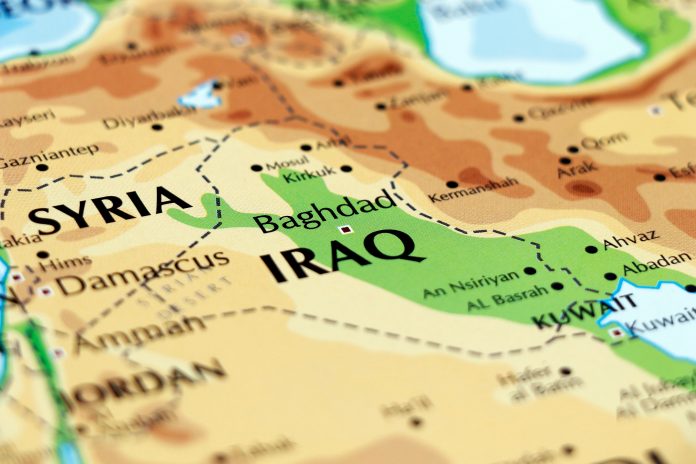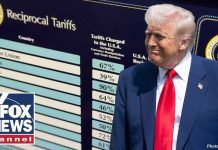
Senator Jim Risch demands Russian military forces exit Syria completely to prevent Iran from regaining influence in the Middle East, setting critical conditions for President Trump’s sanction relief.
Key Takeaways
- President Trump has lifted all sanctions on Syria following the fall of the Assad regime, creating an opportunity to reshape Middle Eastern alliances
- Senator Risch specifically demands the removal of Russian military forces from Syria as a condition for continued sanction relief
- The removal of Russian and Iranian influence is considered crucial to prevent ISIS resurgence and counter China’s attempts to gain economic footholds
- Risch supports Israel’s position against Iran’s nuclear ambitions while advocating for cautious engagement with Syria’s interim government
- The senator emphasized that global alliances remain vital to America’s national security interests
Trump Administration Lifts Syrian Sanctions, Sets New Conditions
President Trump’s recent decision to lift all sanctions on Syria has received strong support from key Republican senators, particularly those focused on Middle Eastern policy. The move follows the fall of the Assad regime in December and represents a significant shift in American engagement with Syria. Senator Jim Risch (R-Idaho), ranking member of the Senate Foreign Relations Committee, has emerged as a vocal advocate for this policy change while establishing clear conditions for continued American support of Syria’s interim government.
“We commend President Trump’s decision to lift all sanctions on Syria. His decision is a welcome response to our call for removal of barriers to expanded engagement with the Syrian interim government. As we have continuously stressed – including in our April 21 letter to Secretary Rubio – the fall of the Assad regime presents a fleeting opportunity for the United States to safeguard American interests,” said U.S. Senators Jim Risch and Jeanne Shaheen.
During a panel discussion at the Hudson Institute, Senator Risch specifically emphasized that removing Russian military presence from Syria stands as a critical requirement for ongoing U.S. engagement. While Russia has withdrawn some forces following Assad’s removal, they continue to maintain military bases in the country, representing ongoing foreign influence that concerns American policymakers. The previous conditions for sanction relief focused primarily on chemical weapons control and counter-terrorism efforts without specifically addressing Russian military presence.
Iran Remains Central to Middle East Strategy
Senator Risch’s focus on removing Russian forces from Syria directly connects to his broader concerns about Iranian influence in the region. The Idaho Republican views Iran as the primary destabilizing force in the Middle East, operating through proxy groups like Hamas, Hezbollah, and the Houthis. By removing Russian military support, Risch believes the U.S. can significantly reduce Iran’s ability to regain influence in Syria, which would threaten regional stability and American interests.
“To seize the moment, it will be important for the President’s decision to be swiftly implemented and for the Syrian government to move quickly to address U.S. national security concerns. This will help Syria remain on the path to freedom from the malign influence of Iran and Russia, from China’s attempt to gain an economic foothold in the Middle East, and from the resurgence of ISIS,” said U.S. Senators Jim Risch and Jeanne Shaheen.
Risch has expressed skepticism about Iran’s willingness to dismantle its nuclear program through diplomatic means. He has consistently advocated for increasing sanctions on Iran and countries purchasing Iranian oil. His position aligns closely with Israeli interests, as he made clear during his Hudson Institute appearance. The senator’s approach reflects the Trump administration’s firm stance against Iranian regional ambitions and nuclear development.
Cautious Optimism for Syria’s Future
Despite his conditions and concerns, Senator Risch has expressed cautious optimism about Syria’s interim government. The new Syrian leadership has formally renounced ties to extremist organizations, though the president remains designated as a terrorist under U.S. law. This complex situation requires delicate diplomatic handling, with Risch advocating for measured engagement while maintaining vigilance regarding America’s security interests in the region.
“I think the guy needs to be given a chance, particularly when he is saying what he’s saying, doing what he’s doing,” said Sen. Jim Risch.
The senator has also warned against broader American disengagement from the Middle East, emphasizing that maintaining global alliances remains fundamental to U.S. national security strategy. Risch has argued that abandoning allies could embolden adversaries like China and potentially trigger destabilizing nuclear proliferation throughout the region. This perspective reflects his belief in maintaining American leadership through strategic partnerships rather than isolation.
“We have relationships around the world that are just as important to us for our national security as are our military operations. We need friends,” said Sen. Jim Risch.



